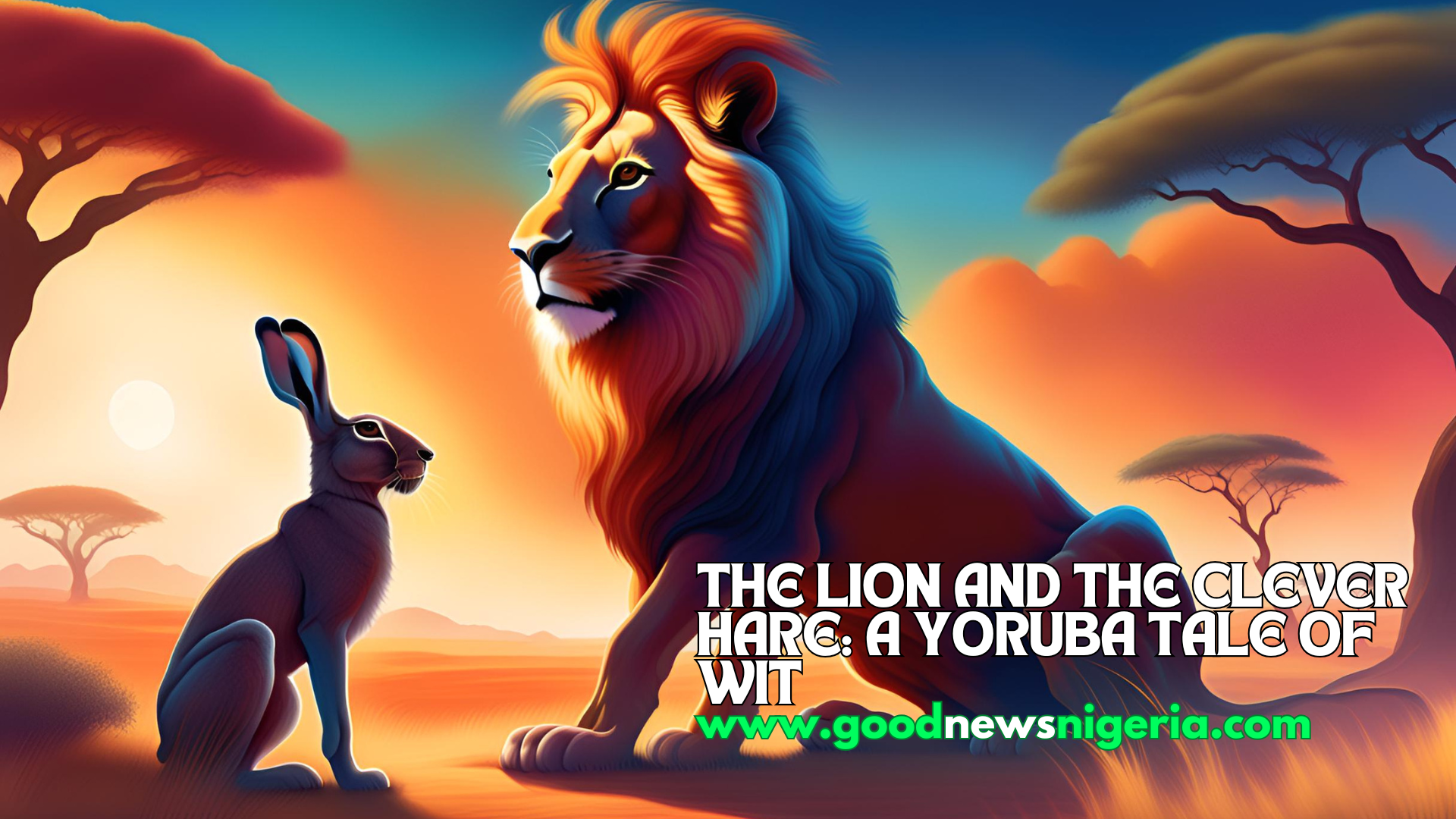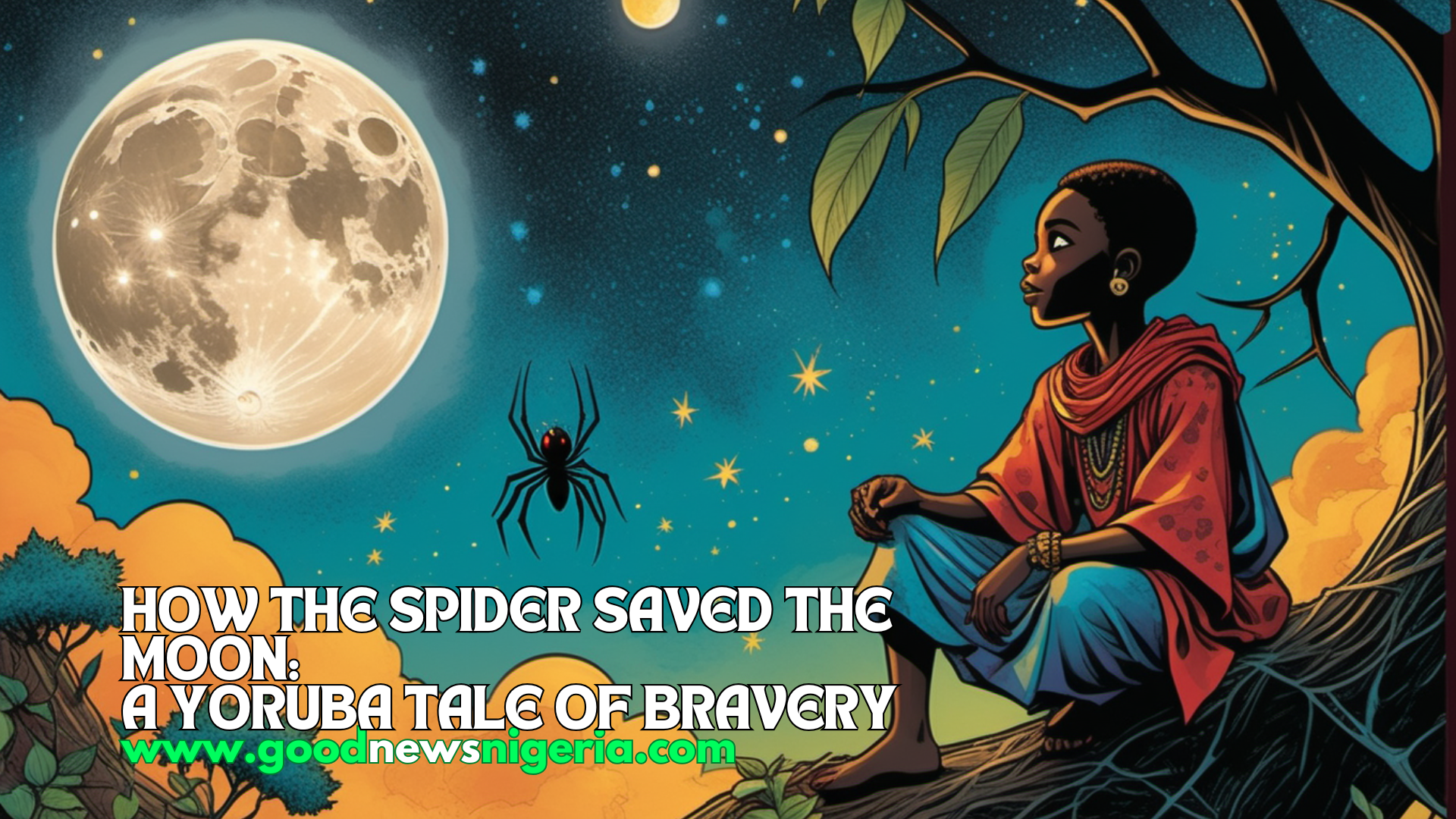
Ethnic Origin: Yoruba
Full Story
In a dense Yoruba forest, a powerful lion ruled over the animals with an iron paw. The lion was strong and feared, but he was also greedy and demanded a feast from the animals each day. Fearing his wrath, the animals decided to take turns bringing the lion his meal.
One day, it was the clever hare’s turn to bring the lion his food. But the hare, unwilling to sacrifice another animal, decided to trick the lion instead. On the way to the lion’s den, the hare spotted a large well. He leaned over and peered into the water, seeing his reflection. An idea sparked in his clever mind.
When the hare reached the lion’s den empty-handed, the lion roared in anger. “Where is my meal, little hare?” he demanded.
“Oh mighty lion,” the hare replied, feigning fear, “I was bringing you the finest goat when another lion appeared from the well and took it. He claimed to be the true king of the forest.”
Enraged, the lion demanded to be taken to the well. When he arrived, he peered into the water and saw his own reflection. Believing it to be another lion, he roared and jumped into the well to confront his rival. The lion drowned, freeing the forest from his tyranny.
The animals celebrated the hare’s wit and bravery, and he became a hero of the forest.
Moral of the Story
The tale of the lion and the clever hare teaches that intelligence and strategy can triumph over brute strength. It also reminds us of the dangers of arrogance and greed.
Cultural Significance
This Yoruba folk tale highlights the cultural value placed on cleverness and resourcefulness. The hare, often depicted as a trickster in African folklore, represents the triumph of wit over oppression, a recurring theme in Yoruba storytelling.




Thank you for helping out, good info. “The laws of probability, so true in general, so fallacious in particular.” by Edward Gibbon.